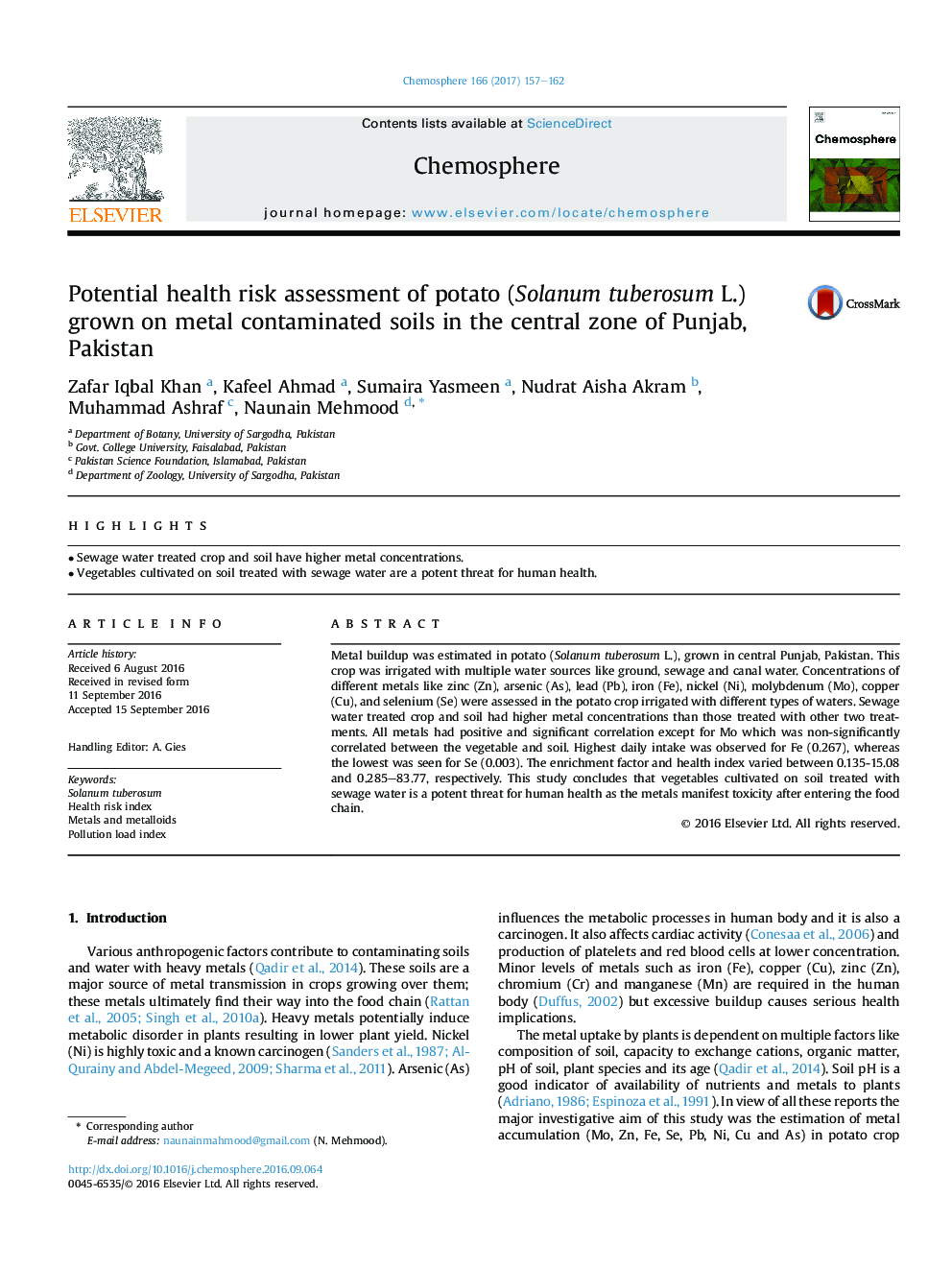| Article ID | Journal | Published Year | Pages | File Type |
|---|---|---|---|---|
| 6306409 | Chemosphere | 2017 | 6 Pages |
Abstract
Metal buildup was estimated in potato (Solanum tuberosum L.), grown in central Punjab, Pakistan. This crop was irrigated with multiple water sources like ground, sewage and canal water. Concentrations of different metals like zinc (Zn), arsenic (As), lead (Pb), iron (Fe), nickel (Ni), molybdenum (Mo), copper (Cu), and selenium (Se) were assessed in the potato crop irrigated with different types of waters. Sewage water treated crop and soil had higher metal concentrations than those treated with other two treatments. All metals had positive and significant correlation except for Mo which was non-significantly correlated between the vegetable and soil. Highest daily intake was observed for Fe (0.267), whereas the lowest was seen for Se (0.003). The enrichment factor and health index varied between 0.135-15.08 and 0.285-83.77, respectively. This study concludes that vegetables cultivated on soil treated with sewage water is a potent threat for human health as the metals manifest toxicity after entering the food chain.
Related Topics
Life Sciences
Environmental Science
Environmental Chemistry
Authors
Zafar Iqbal Khan, Kafeel Ahmad, Sumaira Yasmeen, Nudrat Aisha Akram, Muhammad Ashraf, Naunain Mehmood,
